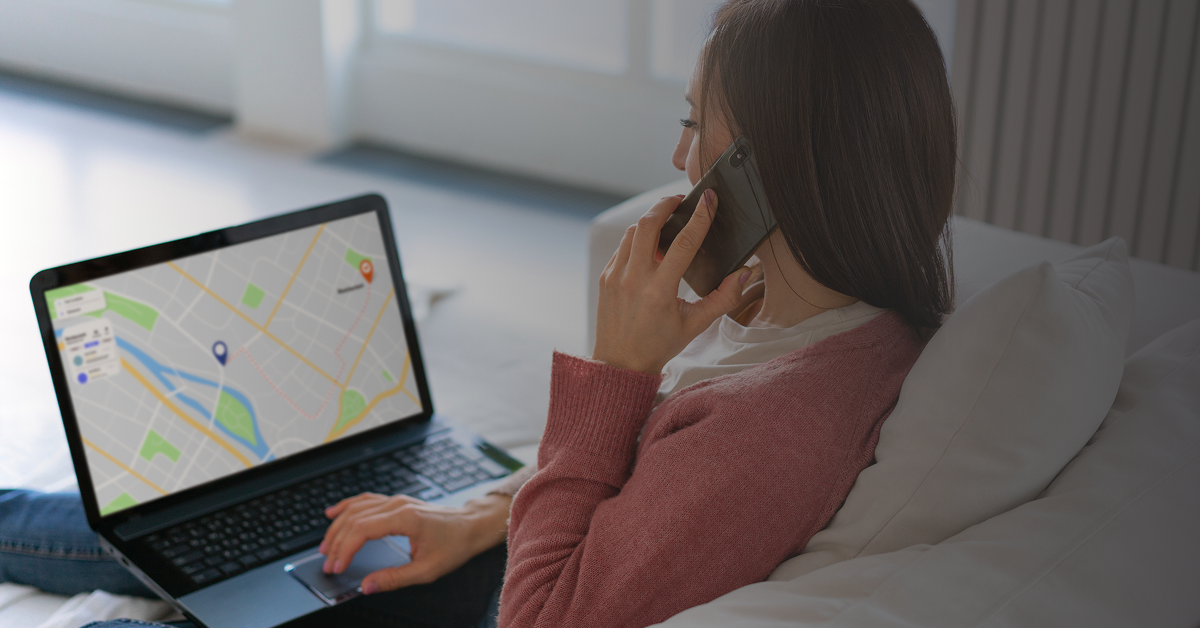You probably already know the internet isn’t as private as it seems. Almost everything you do online—searching, shopping, chatting—can be recorded. But how do you actually know if you’re being tracked online? And what can you do about it?
This guide will walk you through five clear signs that someone—or something—is keeping an eye on your digital life. We’ll also explain how tracking works, who’s doing it, and the best tools to stop it. If you care about your privacy, this article is for you.
What Does “Being Tracked Online” Actually Mean?
When you’re being tracked online, it means websites, apps, or even your internet provider are collecting information about you. That info could include what pages you visit, where you are, what device you’re using, or what you’re clicking on. This data helps companies build a profile about you.
Tracking can be used for targeted ads, data collection, or even surveillance. Some of it happens with cookies. Others use browser fingerprinting, location data, or even microphone and camera access. It’s sneaky, and it’s more common than most people think.
Sign #1: You See Ads That Match Your Private Conversations
Have you ever talked about something with a friend—only to see an ad for that exact thing later? It’s creepy, but it happens. This is one of the strongest signs you’re being tracked online. In some cases, apps may be listening through your microphone.
While big tech companies claim they don’t listen directly, many apps do collect audio data or scan messages. This lets them show you personalized ads based on what you’ve said or typed. If the timing of ads feels too perfect, tracking could be involved.
How to Stop It?
Start by checking which apps have access to your microphone, camera, or text messages. On both Android and iPhone, you can turn off these permissions in your settings. Only give access to apps that truly need it. Also, disable voice assistant features you don’t use.
For extra protection, use a VPN that blocks trackers and protects your connection. Some VPNs offer ad and tracker blockers built-in. This helps stop data leaks before they even start.
Sign #2: Your Search Results and Feeds Feel Too Personalized
When your search results seem overly customized or your social feeds always show what you just talked about, you’re likely being tracked online. Google, Facebook, and other major platforms use data from your activity to tailor content.
They collect data from your browsing history, location, search behavior, and even friends’ activity. This creates a feedback loop where you’re constantly shown things they think you’ll click. It may seem convenient, but it limits what you’re allowed to see—and keeps you stuck in a filter bubble.
How to Stop It?
Switch to search engines like DuckDuckGo, Startpage, or Brave Search, which don’t store your search history or tie your identity to your queries. Pair them with privacy-focused browsers like Firefox or Brave, which block trackers automatically.
Avoid staying logged into Google or Facebook while browsing. These platforms track everything across multiple sites, not just their own. Logging out, clearing cookies, and using incognito windows can help limit their reach.
Sign #3: Your Device Battery Drains Faster Than Normal
Strangely enough, your battery life can reveal if you’re being tracked online. If your device is constantly running location services, microphone access, or background data sync, it can drain your battery much faster than usual.
Apps that track you in the background use system resources. Some even connect to servers frequently to upload your data. If your phone heats up or drains too quickly even when you’re not using it, hidden trackers could be the reason.
How to Stop It?
Go to your phone settings and check which apps are using the most battery. Pay attention to background data usage. Disable location tracking and background activity for apps that don’t need it.
Install a firewall app that lets you see which apps are sending data and to where. Combine this with a VPN that offers deep-level traffic filtering. This adds a strong layer of privacy to your connection.
Sign #4: You Keep Getting Location-Based Ads
If you’re seeing ads for stores near you or events in your area—even if you never searched for them—your location is being tracked. Your IP address, GPS, and Wi-Fi network can all reveal where you are. And advertisers love this kind of data.
Location-based tracking is common in weather apps, delivery services, and maps. But many other apps request access too, even if they don’t need it. Once they have it, they can share or sell that data to advertisers.
How to Stop It?
The easiest fix is to turn off GPS and location sharing for non-essential apps. You can also block location access through your browser settings. On desktops, consider using privacy extensions that block location requests.
A VPN is a strong solution because it hides your IP address, which is one of the main ways companies guess your location. Some VPNs even let you choose which country or city you want to appear in, giving you control over what apps and websites can “see.”
Sign #5: You Receive Suspicious Emails or Phone Calls
If you’re getting emails that mention things you’ve searched for or visited, it’s a red flag. Data brokers often collect info about you from multiple sources, then share or sell it. This can lead to spam, phishing attempts, or robocalls that seem oddly specific.
These messages might reference products, places, or even your job title. If they feel too accurate, it’s likely that your data is out there—and someone is using it. The more places your data appears, the easier it is to target you.
How to Stop It?
Create burner email addresses for different purposes—shopping, subscriptions, social media, etc. You can also use alias services like SimpleLogin or Firefox Relay to create throwaway email addresses that forward to your real inbox.
Don’t use your real name, phone number, or birthday on websites that don’t need it. And always read privacy policies to see if a site sells your data. If it does, walk away. Or better yet, block the site completely.
How Tracking Hurts Your Privacy Over Time?
Being tracked online isn’t just annoying—it adds up. Over time, companies and data brokers collect enough information to create a full digital profile of you. This profile can include your habits, your beliefs, your income, your relationships, and more.
This data can be used to manipulate what you see, change how prices are shown to you, or influence your decisions. It can even be leaked or stolen, leading to identity theft. That’s why protecting yourself online isn’t just about being private—it’s about staying safe.
What Tools Actually Work to Block Online Tracking?
There are tons of “privacy” apps out there, but not all of them do what they claim. Some fake VPNs or browser extensions are tracking you themselves. Others offer weak protection or slow your device.
The tools that really work are open-source, well-reviewed, and don’t log your data. Look for:
- VPNs that offer no-logs policies and strong encryption
- Browsers that block third-party scripts and cookies
- Privacy extensions that monitor tracking requests
- Secure messaging apps with end-to-end encryption
- Password managers to avoid reuse and credential leaks
When combined, these tools create layers of protection—making it harder for anyone to track you or link your actions to your identity.
Stay Private with Uncensor.io VPN
One of the most effective ways to protect your online activity is to use a trusted VPN. Uncensor.io VPN is built for people who are serious about privacy. It hides your IP address, encrypts your traffic, and blocks trackers across all your devices.
Uncensor.io doesn’t log your browsing history, throttle your connection, or sell your data. Whether you’re browsing at home, using public Wi-Fi, or working remotely, Uncensor.io helps keep your digital footprint invisible.
If you’re tired of being tracked online, you don’t need to go off the grid—you just need the right tools. Uncensor.io VPN gives you the power to browse freely, search safely, and live online without being watched.





